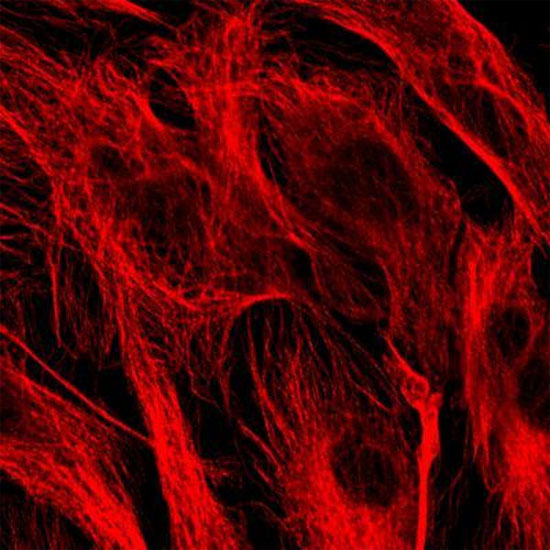Protein supports the treatment of degenerative brain cells
Scientists at the University of Georgia in the US have discovered a protein called MEC-17 that helps direct communication between brain cells.
New findings on paving the way for the development of specific drugs increase or decrease MEC-17 to treat degenerative brain cells such as Huntington, Parkinson and Alzheimer's.

University of Georgia professor - Jacek Gaertig said degeneration of brain cells partly due to changes in microcapsules inside the cell . These pipes act as railroads inside cells that transfer proteins, nutrients, and waste to its addresses.
These pipes also play an important role in cell development and transfer of signals between brain cells.
Adjusting the activity of these microscopic tubes in cells is synonymous with the treatment of degenerative brain cells because these diseases are associated with destruction of transport within the cells.
Researchers have discovered MEC-17 proteins that create pathways on micro-pipes inside brain cells . Following this pathway, the proteins, nutrients, wastes, cell signals are transferred to the appropriate address.
Each cell line has different shipping lines depending on the number of messages it receives and sends.
Research by the University of Georgia scientists is done on human cancer cells and neurons of seahorses and nematodes. Destroying the MEC-17 protein causes seahorses to degrade neuromuscular cells while the nematode worm is tactile, which is very sensitive.
- For the first time cured brain degeneration by ... HIV virus
- Detection of protein that supports the diagnosis of chronic brain damage disease
- Detecting protein can reverse Alzheimer's symptoms
- Discovered two proteins that cause brain cancer
- Chemotherapy increases the spread of cancer cells?
- Treatment of brain tumors using technology
- What is protein thermal shock? Can proteins help us fight cancer?
- Breakthrough kill metastatic cancer cells
- Create brain cells from the skin
- Decode the 'stroke shield' of the brain
- Create brain cells from urine
- Treatment of spinal degeneration by laser magnets
 Green tea cleans teeth better than mouthwash?
Green tea cleans teeth better than mouthwash? Death kiss: This is why you should not let anyone kiss your baby's lips
Death kiss: This is why you should not let anyone kiss your baby's lips What is salmonellosis?
What is salmonellosis? Caution should be exercised when using aloe vera through eating and drinking
Caution should be exercised when using aloe vera through eating and drinking